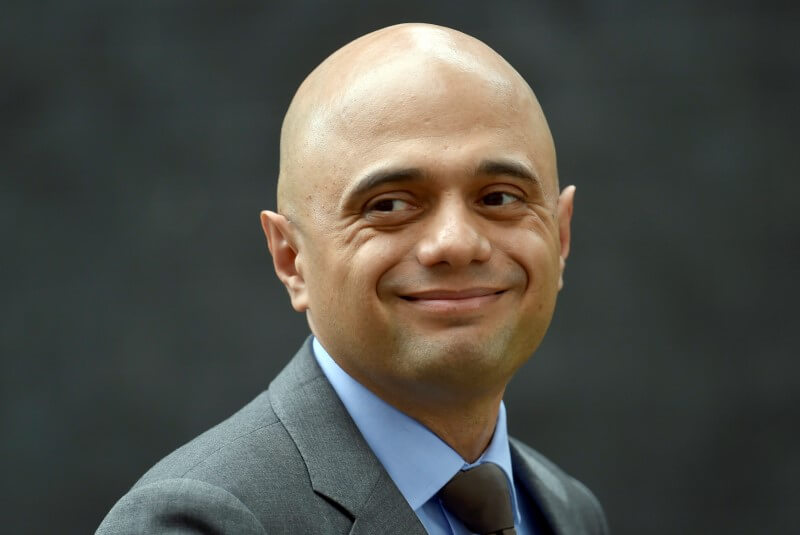By Kylie MacLellan and David Milliken
LONDON (Reuters) – Securing access to the European Union’s single market is the top goal in Brexit negotiations, Britain’s business minister said on Tuesday, as a business group warned the government was a long way from having a clear plan for its future ties with the bloc. Sajid Javid hosted a meeting of business organizations and representatives from Britain’s largest trade sectors to seek to reassure them after last week’s shock referendum vote to leave the EU sparked a meltdown in financial markets. “The biggest issue raised was the need to secure continued access to the single market. While I am not in any position to make promises, I assured everyone that my number one priority will be just that in the negotiations to come,” he told a news conference after the meeting. Javid, who had campaigned for Britain to remain in the bloc, is seen as a candidate to become the next finance minister in a new government after Prime Minister David Cameron announced he would step down by October. Business groups have urged the government to explain how the world’s fifth largest economy will extricate itself from a bloc it joined in 1973. Economists have already warned Britain could tip into recession, hitting the stock prices of sectors such as housebuilders, holiday groups and airlines. Javid said businesses had told him they wanted to see more political leadership, citing both the contest to replace Cameron and also turmoil in the opposition Labour Party, whose lawmakers backed a motion of no-confidence in their leader on Tuesday. After the meeting, the head of the Confederation of British Industry (CBI), which represents Britain’s largest employers, said the government was “a long way off” having a plan.
“There are very high levels of real and genuine concern in the business community,” CBI Director-General Carolyn Fairbairn told reporters.
“What businesses want to happen now is, first of all, very visible political leadership around the UK being an open trading, successful, outward-facing market … Secondly the commitment to developing a plan very quickly around the deal that we would have.” UNCERTAINTIES
The CBI, which had argued there was a strong economic case for staying in the EU, said a number of its members had put plans on hold but others wanted to go ahead with investments.
“Businesses want to invest, they want to grow, they’re looking for the opportunity. As some of these huge uncertainties at the moment begin to diminish, many of our members said they still have plans they want to go ahead with,” said Fairbairn. Javid said Chinese technology company Huawei [HWT.UL] told the government on Tuesday it planned to go ahead with a 1.3 billion pound investment in Britain despite the vote.
The government invited representatives from some of Britain’s largest sectors, including aerospace, defense, automotive, oil and gas, steel, rail, tourism and food and drink to the meeting, which it said would be the first in a series. Cameron is also due to meet business leaders later in the week to discuss the impact of the referendum result.
Britain’s top share index, the FTSE 100 <.FTSE>, bounced back on Tuesday after a fall of more than 5 percent in the two sessions following the vote wiped nearly 100 billion pounds ($132 billion) off the value of blue-chip firms. Javid said businesses could see some of the opportunities of Brexit, such as the chance to forge new trade deals.
He said he would lead a series of trade missions this year and the government, which has few trade negotiators as its deals have been conducted for decades through the EU, had already begun the process of boosting resources to negotiate deals. Asked whether access to the EU’s single market would mean accepting free movement of people as countries such as Norway do, Javid said Britain’s agreement could be different.
“Access can come in many forms … I don’t think we can stand here and say if that is how it works for other countries it has to work like that for the UK,” he said. “We will see over time what actually materializes.” (Additional reporting by Andy Bruce and William James; Editing by Gareth Jones)
UK minister says EU single market access is top goal, businesses decry lack of plan

By Kylie MacLellan and David Milliken
















